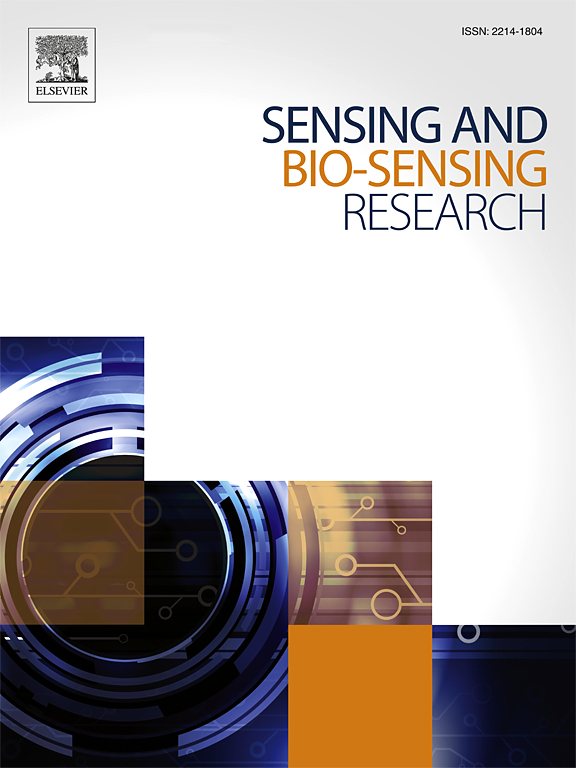Nanotechnology and nanosensors in personalized healthcare: A comprehensive review
IF 5.4
Q1 CHEMISTRY, ANALYTICAL
引用次数: 0
Abstract
Healthcare is one of the most essential fields in providing accurate and fast medical care. With the advancement of technology, nanosensors have become a new tool that has enabled early diagnosis and continuous monitoring of diseases with high accuracy. With the ability to identify molecular and cellular changes, nanosensors can accurately detect biomarkers of diseases even in the initial stages and provide detailed information about the state of the body, especially in complex and costly diseases such as cancer. However, in this process, there are challenges such as biocompatibility and long-term stability of nanosensors in biological environments, immune reactions, and the possibility of their destruction. The present article has identified the challenges and evaluated the new methods of this technology by systematically reviewing the application of nanosensors in healthcare. This article aims to provide a comprehensive view of how to use nanotechnology as nanosensors in healthcare. The findings show that using nanosensors in the healthcare field can increase the accuracy of disease diagnosis (ADD) by 35 % and improve the quality of personal health monitoring (PHM) by 23 %. Also, this technology has reduced diagnostic response time (DRT) by 21 %. Finally, this research has taken a practical step towards further developing the application of nanosensors in the healthcare field by providing valuable recommendations and examining open issues.
纳米技术和纳米传感器在个性化医疗:一个全面的回顾
医疗保健是提供准确和快速医疗服务的最重要领域之一。随着技术的进步,纳米传感器已经成为一种新的工具,可以实现疾病的早期诊断和高精度的连续监测。由于能够识别分子和细胞的变化,纳米传感器可以准确地检测疾病的生物标志物,甚至在最初阶段,并提供有关身体状态的详细信息,特别是在复杂和昂贵的疾病,如癌症。然而,在这一过程中,纳米传感器在生物环境中的生物相容性和长期稳定性、免疫反应、破坏的可能性等都面临着挑战。本文通过系统地回顾纳米传感器在医疗保健中的应用,确定了该技术的挑战并评估了该技术的新方法。本文旨在全面介绍如何在医疗保健中使用纳米技术作为纳米传感器。研究结果表明,在医疗保健领域使用纳米传感器可以将疾病诊断(ADD)的准确性提高35%,将个人健康监测(PHM)的质量提高23%。此外,该技术还将诊断响应时间(DRT)缩短了21%。最后,本研究通过提供有价值的建议和检查开放问题,为进一步发展纳米传感器在医疗保健领域的应用迈出了实际的一步。
本文章由计算机程序翻译,如有差异,请以英文原文为准。
求助全文
约1分钟内获得全文
求助全文
来源期刊

Sensing and Bio-Sensing Research
Engineering-Electrical and Electronic Engineering
CiteScore
10.70
自引率
3.80%
发文量
68
审稿时长
87 days
期刊介绍:
Sensing and Bio-Sensing Research is an open access journal dedicated to the research, design, development, and application of bio-sensing and sensing technologies. The editors will accept research papers, reviews, field trials, and validation studies that are of significant relevance. These submissions should describe new concepts, enhance understanding of the field, or offer insights into the practical application, manufacturing, and commercialization of bio-sensing and sensing technologies.
The journal covers a wide range of topics, including sensing principles and mechanisms, new materials development for transducers and recognition components, fabrication technology, and various types of sensors such as optical, electrochemical, mass-sensitive, gas, biosensors, and more. It also includes environmental, process control, and biomedical applications, signal processing, chemometrics, optoelectronic, mechanical, thermal, and magnetic sensors, as well as interface electronics. Additionally, it covers sensor systems and applications, µTAS (Micro Total Analysis Systems), development of solid-state devices for transducing physical signals, and analytical devices incorporating biological materials.
 求助内容:
求助内容: 应助结果提醒方式:
应助结果提醒方式:


